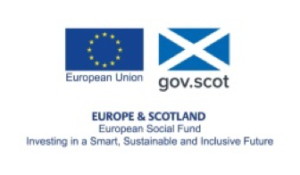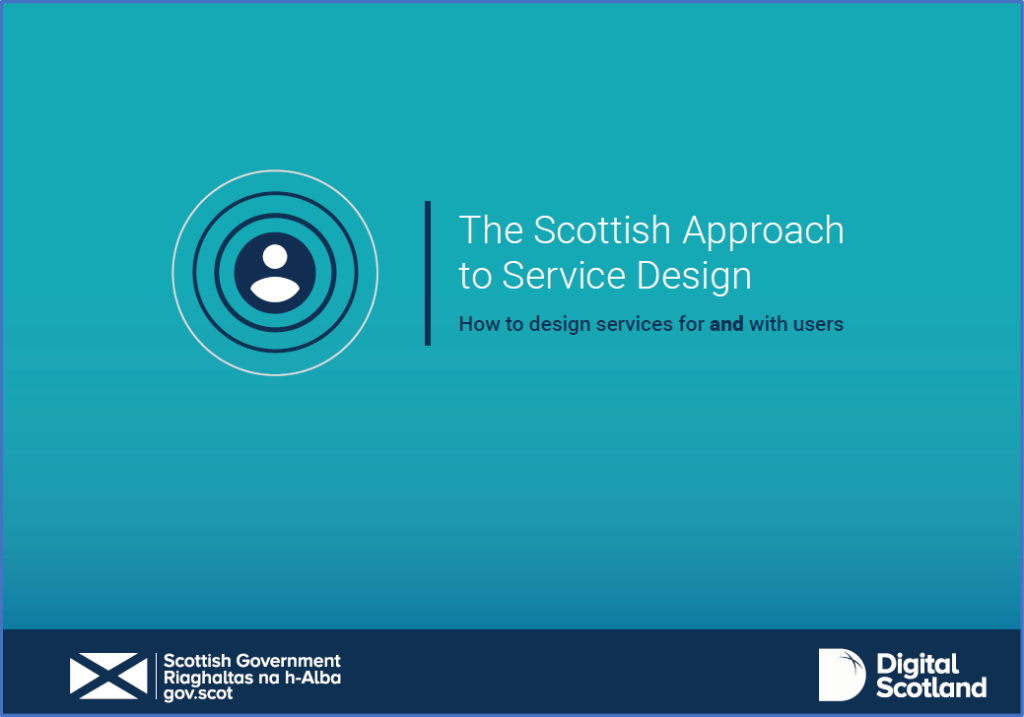Development Officer, Glasgow City Council, Economic Development

Staff from Economic Development in Glasgow City Council have an ongoing relationship with Community Justice Glasgow (CJG), which has strengthened over 2021-22, due to the City Council’s Local Employability Partnership (LEP) meeting more regularly, to look at how employability in Glasgow can become more closely integrated and aligned and fit with the ambitions of No One Left Behind (NOLB), namely ensuring services are:
- person-centred
- more flexible and responsive to the changing labour market
- contributing to tackling inequalities
- helping to grow Scotland’s economy
You can also read a bit more about our earlier work around NOLB in the article by my colleague Alison McCrae in the 2020-21 Annual Reporter ‘Collaborating to Ensure No One is Left Behind’ or from the Scottish Government’s National Delivery Plan – CLICK ON THE PICTURE LINKS BELOW:
Community Justice is one area clearly called out as crucial in the new approach to delivering employability support through NOLB, therefore CJG has been taking an active role within the LEP, to ensure all citizens are able to access employability services, regardless of their background. There is a body of evidence, for example see ‘What Works to Reduce Re-offending: A Summary of the Evidence’, which supports employment/employability as a key ‘protective factor’ in reducing the risk that someone will re-offend.
CLICK THE PICTURE OR SCAN THE QR CODE BELOW TO READ THE DOCUMENT
2021/22 was a busy year for the LEP partners, with a focus on:
- establishing more effective partnership working – through creating a terms of reference
- developing the local NOLB Delivery Plan
- building strong leadership and relationships
- governance arrangements
- developing an allocation of funding process
- working together to integrate and align using the Scottish Approach to Service Design (SAtSD)
SAtSD is the approach being rolled out by the Scottish Government, to ensure that the NOLB principles are fully imbedded in future employability services, by placing Service Users at the centre of their employability journey through co-production, to ensure a more joined up, more accessible experience, regardless of who you are, where you live, or what your perceived barriers to employment may be
In early ‘22, two of Glasgow City Council’s European Social Fund (ESF) employability projects, which focus on working with participants with experience of the criminal justice system (The Way Ahead project and ChoiceWorks), participated in an extensive consultation exercise undertaken by Economic Development, to investigate how to re-design the employability landscape in Glasgow, using the SAtSD principles. The first part of the process was to define the problem. These were the main issues identified by those with experience of the Criminal Justice system:
- Employer engagement is difficult for the candidate group.
- People with convictions experience a lack of specialist support in relation to disclosing offense history to employers or receiving adequate support prior to their release. Some of the additional barriers people with convictions tend to face include:
- low educational attainment
- homelessness
- poor health and wellbeing
- addiction
- poor mental health
- trauma
- People with convictions don’t receive the seamless support across their areas of need:
- tenancy
- employability
- financial management
- mental health
- addiction
- deprivation
- educational attainment etc.
Alongside feedback from all other GCC funded employability projects, this input is being synthesised into a report which will be taken back to the LEP for approval, before moving onto the design phase of the process. WATCH THIS SPACE for more developments.
S is a 33-year-old male who resides in the North East of the city. He was referred to Choiceworks by his Social Worker in August 2019, who felt S required assistance to move on from offending behaviour and to fill his time with meaningful activities. Although S is not a persistent offender the convictions he has picked up are of a moderate to serious nature. He was also given a 12 months’ Community Payback Order and Restriction of Liberty Order, pertaining to a previous relationship.
S has his own tenancy and due to break up of a previous relationship was fighting for custody of the child. He now has a new partner and a baby son. S is currently unemployed and has a good work history, good standard of education and has completed an Apprenticeship. He is eager to move forward and put the past behind him. He is eager to gain CITB, CSCS Construction Labourer Card to assist him to move into meaningful employment where he can support his family.
S worked with Case Management and Intervention workers to address barriers to progression and address offending behaviour. S was provided with a weekly zone card to enable him to participate in the Choiceworks Programme.
S attended every session and presented as a pleasant young man who deeply regretted being involved in offending behaviour. Offence Based Interventions Sessions were carried out over a 6-week period to look at how S had become involved in the offence he had been convicted of and the impact the sentence was having on his life. Using a Cognitive behaviour therapy model, we looked at the choices and consequences of the decisions made by S on the lead up to and during the offence, and how S could try to deal with things differently if a similar situation arose in the future. We also discussed at length how the offence had impacted on S and how he could move on from this and continue to pursue his ambition of gaining employment and he was open to positive employment opportunities.
Alongside the offence-based work, S also worked with the employability/training officer to undertake Career Guidance and consider options to meet his individual wants and needs.
As S wanted to gain CSCS Card he undertook training with an Employability Officer and became confident enough to undertake the CSCS Test.
S undertook research for funding and contacted Princes Trust who agreed to pay for the CSCS Test which S undertook in December 2019 and passed gaining CSCS Construction Labourer Card He was delighted, and this proved to encourage S and motivate him to succeed.
He also participated in Employability sessions and updated his CV. He also covered Jobsearch and applied for multiple positions. He participated in Interview skills/techniques and confidence building session to be prepared for future interviews and became confident in this area.
During this time S had a court appearance and Case Management worker supported S at Court and provided a letter to his lawyer. Choiceworks was recognised as a positive pathway by the Court, and this was reflected in S receiving a £350 fine and a 21-month driving ban and not a custodial sentence.
Unfortunately, COVID appeared, and this had a detrimental effect on employment opportunities and many of the applications he had sent were withdrawn due to Covid. Contact was maintained with S throughout as he had to shield due to health issues.
In June 2021, S applied for a position within Glasgow City Council, as a Land and Environmental Operative, Bin Operative. He was successful in gaining the position. There was some confusion regarding the position which led to a delayed start date. S was disappointed, but the Employability Officer kept in touch with the Council and S was offered the position with a start date for April 2022.
“I am happy that I have gained employment with Glasgow City Council, a secure job. It has been a long time coming but worth the wait. I am more positive about the future and supporting my son. Choiceworks helped me to make positive choices and get where I am today, all through Lockdown I had regular contact which kept my spirits up.
I wouldn’t be where I am today if it was not for the consistent help and support I have received to get me where I am today.” (S April 2022)











